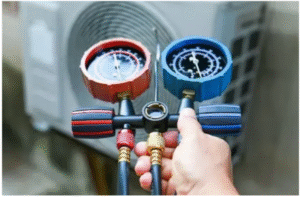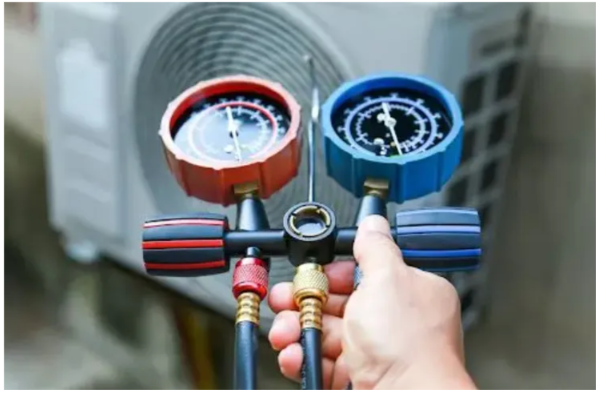How to Troubleshoot a Heat Pump That’s Leaking Water
How to Troubleshoot a Heat Pump That’s Leaking Water . While good heating and cooling systems do, heat pumps move thermal energy between indoor and outdoor spaces. These systems naturally produce condensation while running; too much water collection or leakage suggests prospective problems needing quick fix. Knowing normal heat pump performance helps separate troublesome water problems from routine condensation.
An air pump designed for heating Water leaks surrounding either an interior or an outdoor unit point to underlying mechanical or maintenance problems. Among several causes water leaks from frozen coils could result from blocked drainage systems, refrigerant issues, improper installation, or frozen coils. Knowing the basic cause helps homeowners to make suitable repairs and preserve expensive system and surrounding area harm. Let’s consider the typical sources of water leaks and appropriate repairs for them.

Usually, heat pump water leaks result from
Usually, there are multiple clearly recognized reasons for heat pump leakage. Blocked condensate drains, that is, when dust, trash, or algae collect in drainage lines, are the most usually occurring problems. This barrier causes overflow and apparent leaks surrounding the indoor unit by stopping appropriate water evacuation.
Another major issue, especially in quite hot or cold conditions, are frozen evaporator coils. Ice growth throws off normal drainage patterns when low refrigerant levels or restricted circulation cause coils to freeze. Too much water from leaky ice overwhelms the drainage system.
How to Troubleshoot a Heat Pump Problems with Water Using Outdoor Units
Although outdoor heat pump systems naturally create condensation, too much water accumulation indicates to major issues. The defrost cycle of the outside unit dissolves collected frost and ice in heating mode. While normal defrost operation causes transient water outflow, too much or too little water suggests mechanical problems.
Blocked outdoor drainage systems stop the required water loss during thaw cycles. Among other garbage, dirt and leaves obstruct drainage systems, resulting in pooling of water around the apartment. This standing water could damage the parts of the unit and create ice under freezing conditions. Good outside unit maintenance guarantees efficient functioning and helps to avoid ice accumulation, therefore shielding your house from freezing weather.
How to Troubleshoot a Heat Pump Issues with the interior unit drainage
Indoor unit drainage problems show themselves as visible water leaks around the air handler or ducting. Condensate pans, drain pipes and pumps removing moisture from the inside air make up the main drainage system. Water gathers and overflows when these parts fail.
Failure in condensate pumps stops water from leaving the drainage pan. These pumps need regular maintenance and finally replacement when mechanical parts break down. Unusual noises, flowing constantly, or clean water collecting point to pump failure.
Expert house cleaning services
Expert maintenance programs target difficult heat pump water leaking problems with specific knowledge and tools. Certified specialists use thorough system analyses to find any issues before they cause major harm or operational failures.
- Programs of regular maintenance consist in:
- Clearing and analyzing condensate drains
- Variations in refrigerant level tests
- Component replacement and change
- Enhancement in the performance of the system
- Scheduling preventative therapy
Professional services enhance equipment lifetime by means of suitable care and attention, thereby guaranteeing correct system functioning. Equipped with equipment and knowledge, technicians can identify difficult problems and provide logical answers.
Proactive Maintenance and Prevention
Good heat pump performance and reduced water leak risk depend on frequent maintenance. Regular filter replacement provides proper airflow and minimal pressure on system components usually every one to three months. Clean filters stop dust from building up and possibly choking drainage systems.
Seasonal checks help to discover possible problems before they become costly fixes. Examining indoor drainage components, monitoring system performance indices, and looking at outside units for trash accumulation help one spot early warning indications of emerging concerns. Twice annual professional maintenance visits provide thorough system upkeep.
Water-based heat pump leaks necessitate prompt response to stop damage and sustain system function. Knowing typical causes—such as blocked drains, refrigerant problems, or condensation build-up—helps homeowners to react early on and identify warning signs. While personal administration of basic maintenance activities is feasible, specialists should handle hard tasks to ensure safety and effective repairs. Regular maintenance substantially minimizes the likelihood of water leaks and helps the machinery to last for more years.
